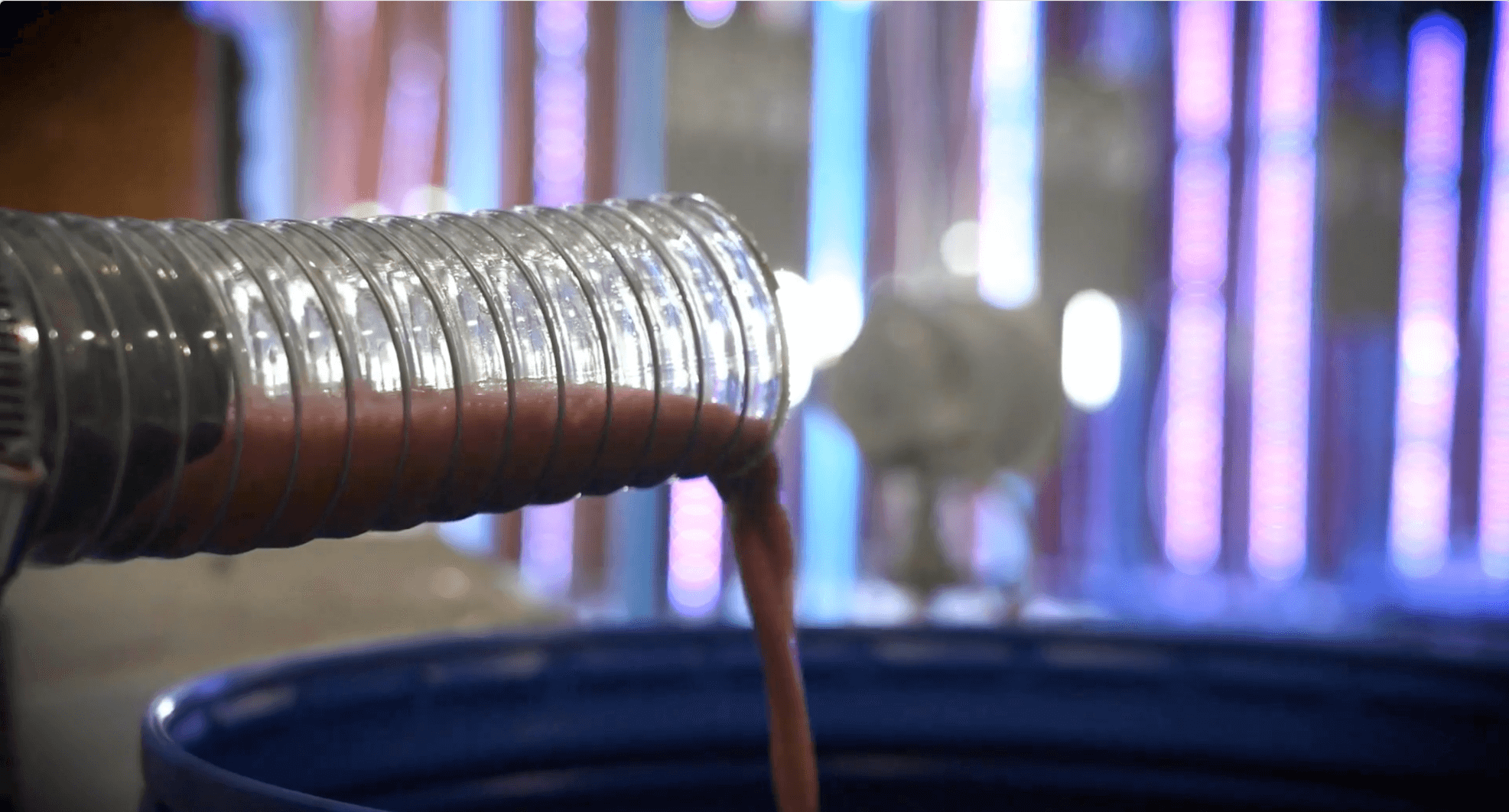The Israeli company Yamoja unveils red microalgae, which will serve as a blood substitute for the cultured meat and vegetarian industries

Anyone who has tried eating a vegetarian or vegan hamburger or steak, even from the world's leading companies, knows the feeling: it's delicious, but still doesn't feel like the real thing.
The Israeli company Yamoja reveals Red micro-algae, which will serve as a blood substitute for the cultured meat and vegetarian industries. Vegetarian or cultured steaks and burgers will not be paler but will offer an improved eating experience, more akin to the original experience of a hamburger or steak that has just come off a grill over coals.
The "ship" (Ounje) which means "food" in the Yoruba language, will add to the cultured and vegetarian meat, what it has lacked so far to feel like the real thing - red juiciness and a crispy texture. The artificial blood will upgrade the experience of eating cultured meat without harming the animals, its production is non-polluting and it will eliminate the artificial color additives used by the meat substitute industries today.
Growing need for cultured meat
The climate crisis, the increase in the world's population, the significant emission of greenhouse gases created by the cultivation and production of live meat, and the suffering caused to animals, have stimulated the urgent need to create cultured food. In recent years, the global foodtech industry, based on groundbreaking technological developments, offers new products and ingredients that make cultured food attractive and appetizing. The foodtech companies have overcome the nutritional obstacle, and manage to offer healthy products, but some of them suffer from sensory deprivation. The taste, texture and appearance are not always the same as the beloved source.
The Israeli company Yamoja faces the challenge, and offers the additive it developed from algae, which will upgrade the cultured and vegetarian meat products. Combining derivatives of Porphyridium algae, provides nutrients, and with the completion of the development work, the company can provide the supplement rich in nutrients and sensory characteristics of juicy meat, plant-based meat and cultured meat products.
How do you do that?
The company has developed a groundbreaking system for biological culture of pure and standardized components from microalgae, intended for the food and cosmetic industries. The system creates manipulation of light, temperature and acidity and enables the creation of materials with a precise concentration of bioactive components without environmental pollution and with a minimal ecological signature. The production process requires few resources, without unnecessary waste.
Porphyridium algae has a dark red color, and is grown in photobioreactors and controlled conditions. The clean growth from a complete plant source makes the seaweed suitable for use by the meat substitute industries.
The artificial blood browns when heated, like raw meat juices
Dr. Amikam Bar-Gil, founder and chief technology officer (CTO) of Bimoja: "We came across porpyridium algae by chance, while we were working on developing a component for the cosmetics field. To our surprise it was discovered that acceleration components resemble blood in appearance and texture. Positive results of experiments we conducted encouraged us to stretch the boundaries and try the ingredients on cultured meat products. The result provided us with immediate proof of feasibility."
The cultured and vegetarian meat industries, which are growing rapidly, use beet juice or artificial colorants in order to give the meat they produce a red and stimulating color. These "paint" the foods with a reliable and appetizing color, but it does not change or caramelize during grilling, as happens with raw meat on the fire. In order to achieve the carmol effect, meat substitute manufacturers use different types of sugar. The developed, patented onze provides the red pigment for raw meat products, and reacts with browning when heated, just like raw meat juices.
The benefits of porpyridium algae as a superfood do not only come down to aesthetic and sensory benefits, but also a significant nutritional advantage. Microalgae is a sustainable growth, with a protein content of 20%-30% and a complete profile of essential amino acids. Algae are also a valuable source of essential fatty acids, polyphenols, minerals and vitamins.

5 תגובות
The liquid in the picture is strawberry banana drink
Misleading title, I expected more from you..
Misleading title... it's blood, just a red color.
Perhaps it will be possible to use the artificial blood to satisfy the thirst for blood of many people, so that there will be no need to stab, punch, shoot, bomb, and crush, and it will be possible to stop and manufacture weapons, recruit people and train them to kill.
It can be a start-up without the need for an exit.
The title is very misleading
The blood in nature, especially the red blood cells lead. The oxygen, and other substances is not the place to go into detail.
Here, the extracted liquid. Algae is cosmetic for color and possibly texture change.
It is not used as a food solution for the cultured meat culture, and certainly not as a transport system.
Also, the red color in the piece of meat, babu is not blood but myoglobin found in the muscle